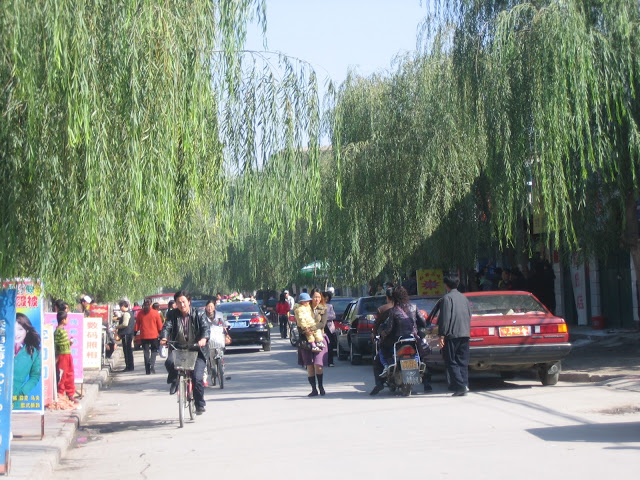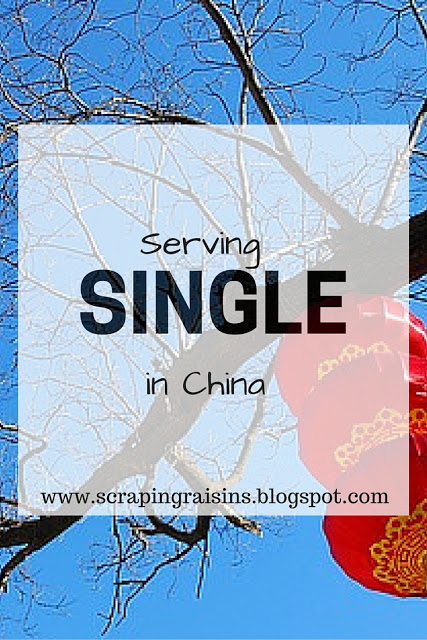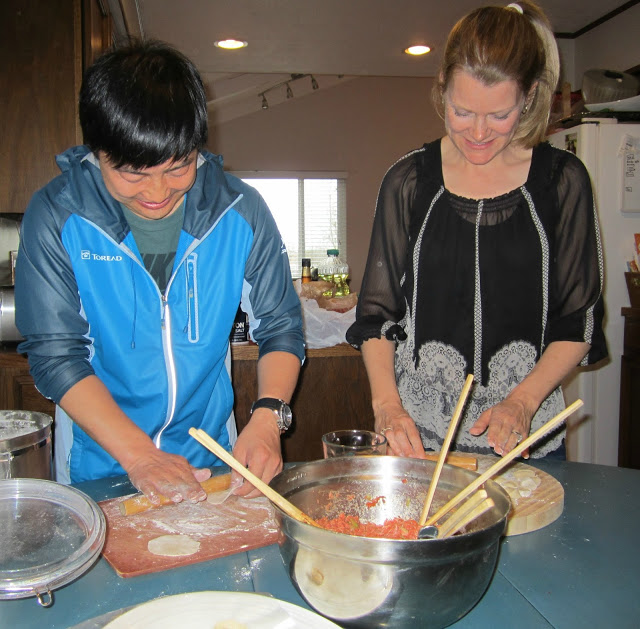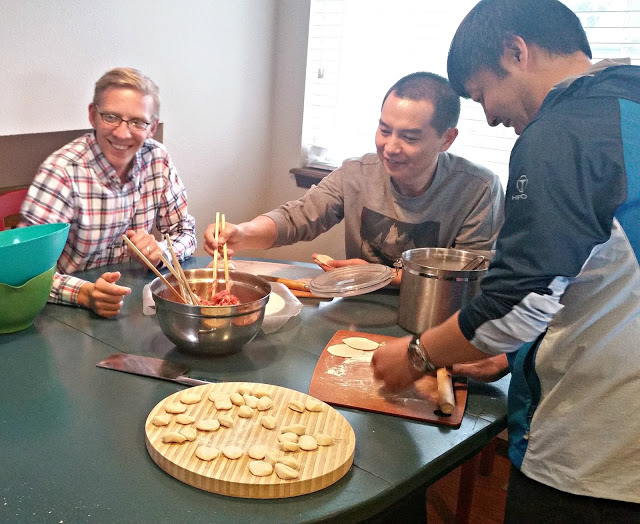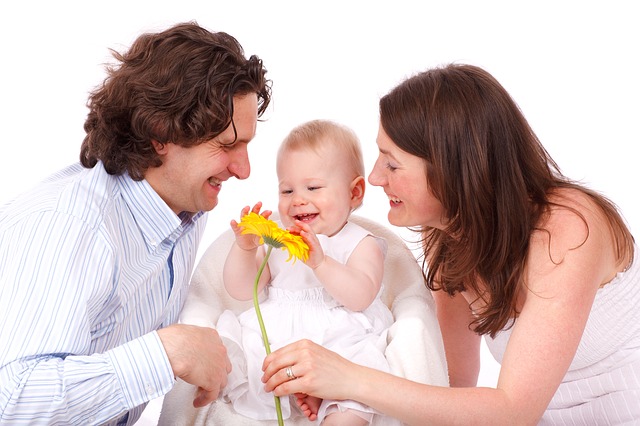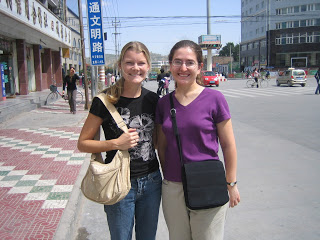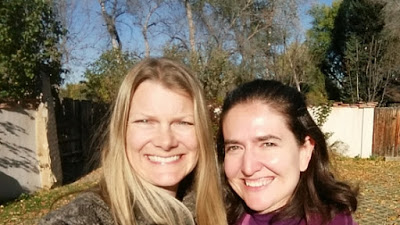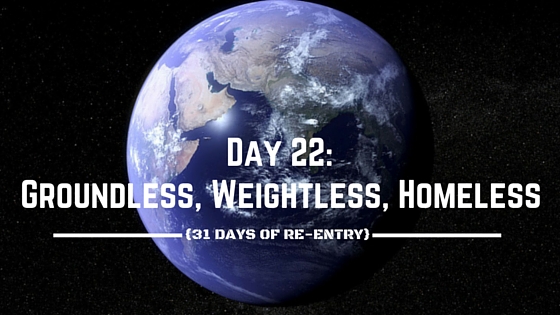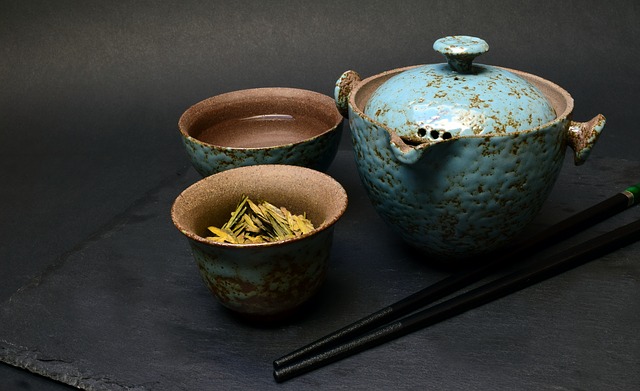
By Jodie Pine | Instagram: @jodiepine
God doubly blessed our family with the opportunity to live, not only in the hospitable land of China, but also among the super hospitable Muslim minority people there.
Whenever we visited someone in the village where my husband did ethnographical research, we were served tea and something to eat.
Sometimes I had to let my best friend there know that I would really rather talk with her than eat, as I would stop by to visit and she would spend most of the time in the kitchen cooking for me! They are extremely generous, servant-hearted people who greatly honored us as their guests.
Initially, after being on the receiving end of Chinese Muslim hospitality, I felt intimidated to try to extend it myself. I thought I needed to fill the table with a huge variety of dishes like they do. Eventually though, I came to realize that being present and interested in them, with a learner’s heart, was more important to our guests than an impressive meal.
During the 4 ½ years that our family lived in central western China, we probably learned more through our mistakes than our “successes” about extending hospitality to our Muslim friends.
Once when my husband and sons were out of town, I invited a group of female Muslim college students to our home, and my daughter prepared a Halal lunch. We were both very surprised when they refused to eat our food. They didn’t even drink the tea we offered them, because they said we were not clean. After engaging in a somewhat heated spiritual discussion with us for about an hour, they said they needed to leave.
I had thought “being clean” meant the food we were offering them was clean (meaning that we did not cook pork in our kitchen). However, a friend I consulted afterward helped me to understand that when we had all entered the apartment together they had not seen me wash my hands, and I hadn’t offer them a place to wash either. Clearly, there was more to being clean than I had realized.
Another one of our cross-cultural lessons was that our Chinese Muslim friends had a wide range of devoutness. Some were simply non-pork eating Muslims, and that was the only thing that made them different from the Han Chinese. Others took their faith practices and traditions very seriously.
Once, my husband asked my Muslim friend who came over during Ramadan about the fast he assumed she was doing. She politely informed him that actually she doesn’t practice Ramadan, and would like a glass of water! That was an awkward situation, but we were all able to laugh about it. We learned that making wrong assumptions had the potential of making our Muslim friends feel guilty, like they were not “good” Muslims.
On the other end of the spectrum, one of our more devout Muslim neighbors had our family over for meals several times, but consistently refused our invitations to have them over. Instead of taking it personally, we concluded that maybe eating food that came from our non-Muslim kitchen would have violated their conscience.
Over time, we discovered that some of our Muslim friends had no problem eating the chicken that we served when we told them that it came from the grocery store with a Halal sticker on it. Others told us that they would only eat chicken that was bought from a Muslim butcher at the market, to give them confidence that the proper prayers had been said when the animal was killed.
When our family noticed that it was the youngest son in the family who had the responsibility of filling the tea cups of the guests, our youngest son (before we adopted two more) took over this task and did very well. We also observed that younger people treated their elders with a lot of respect, and so we tried our best to incorporate this value into the way we treated our guests as well.
We learned that in group settings, men and women often ate in different rooms. So we were prepared, when groups came to our home, to set up a separate women’s table in my daughter’s bedroom if that would make our guests feel more comfortable.
Sometimes guests wanted to recite their prayers during the prayer time that occurs around dinnertime. We offered our daughter’s bedroom for them to pray in, as it was in the best location facing Mecca. We made blankets available for the them to put on the floor, or sometimes they used their own jackets. We also removed all pictures that would be between them and the window while they prayed, as that is forbidden.
Looking back now, I would say that my biggest lesson from our time of living among Chinese Muslims was: If we enter a new culture and are easily offended or quick to judge what we encounter as “wrong” instead of “different,” we’ll end up building walls instead of bridges.
Humility in cross-cultural hospitality enables us to realize that we are always capable of making mistakes or being misunderstood, but we can refuse to let either of those concerns stop us from seeking and building relationships with those who are different from us.
There is a strong message in our world right now that Muslims are our enemies. Our family’s experience with Chinese Muslims proved the opposite to be true. We are grateful for God’s gift of life-changing friendships with some of the most beautiful people in the world.
*Parts of the this post originally appeared during two interviews at The Serviette.
About Jodie:
 As a mom, I juggle two different kinds of parenting — long-distance to our 3 adult kids (who are white on the outside but very Chinese on the inside) and our two adopted Chinese boys at home who have special needs. Since being back in the US, my husband has taken up cooking Chinese food, with a specialty of Lanzhou beef noodles (where we used to live and where our boys are from), giving us a taste of “home.” You can follow our story on my blog. I am also on Instagram and Facebook.
As a mom, I juggle two different kinds of parenting — long-distance to our 3 adult kids (who are white on the outside but very Chinese on the inside) and our two adopted Chinese boys at home who have special needs. Since being back in the US, my husband has taken up cooking Chinese food, with a specialty of Lanzhou beef noodles (where we used to live and where our boys are from), giving us a taste of “home.” You can follow our story on my blog. I am also on Instagram and Facebook.
***

Our theme this month is “Hospitality Around the World.” Email me at scrapingraisins @ gmail (dot) com if you are interested in guest posting. Guest posts should be between 500 and 900 words. Be sure to include a headshot and bio. The theme for August is “Homelessness, Refugees & the Stranger,” so send me a post for that, too, if you have a good idea!
And if you’re not a writer, be sure to follow me on social media (links in upper right) to keep up with the latest blog post or sign up for my newsletter below for links to thought-provoking articles, a digest of blog posts, and a few things I’m into these days! xo










